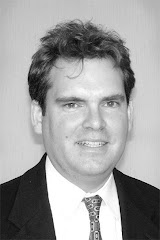News Release ...DES MOINES -- As they weigh presidential candidates’ rhetoric about the federal budget in advance of the January caucuses, Iowans will have an opportunity to try to improve it themselves in a community-wide deficit-reduction exercise Monday, Nov. 14 at Drake University.
The exercise, designed by The Concord Coalition, is being co-hosted by the Des Moines Register and Drake University’s College of Business and Public Administration. The event, from 6:30 p.m. to 8:30 p.m., is free and open to the public.
“Even after the country has fully recovered from its current economic difficulties, we are on course for sharply rising deficits as the population ages, health care costs continue to climb rapidly and the government’s interest costs spiral upwards,” says Robert L. Bixby, Concord’s executive director.
“Without reforms, the gap between government spending and revenue will get larger and larger,” Bixby points out. “We clearly need to put the country on a more responsible track and avoid burdening our children and future generations with our debts. Fortunately, various experts and bipartisan groups have recommended many ways to do that. We invite Iowa residents to join us next Monday night to discuss many of these options and decide which ones they believe would be most fair and effective.”
Bixby and Sara Imhof, Concord’s Iowa-based Midwest regional director, will be the presenters at the program.
The exercise allows people to assume the roles of members of Congress who have been appointed to a special committee to recommend a package of policies to put America on a sound fiscal foundation again – much like the “super committee” that is to issue its recommendations to Congress on Nov. 23.
The exercise calls for difficult decisions on domestic and defense spending, entitlement reform and tax policies.
“This experience should help voters to better understand the federal budget, the choices we face and the consequences of continued procrastination,” Imhof says. “That, in turn, should help them hold elected officials and candidates accountable for sound fiscal policy proposals.”
Although there is no charge for the program, reservations are appreciated and can be made at concordcoalition.org/RSVP .
WHAT: Community-Wide Deficit Reduction Exercise
WHEN: 6:30 p.m. to 8:30 p.m. Monday, Nov. 14
WHERE: Parents Hall, Olmsted Center at Drake University.
2875 University Ave., Des Moines
WHO: Robert L. Bixby, executive director of The Concord Coalition
Sara Imhof, Concord’s Midwest regional director







